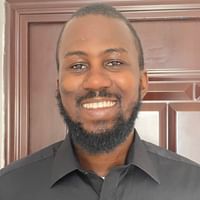The Nigerian team is by far the most successful African team the Olympic football circuit and has finished on the podium on three occasions.
Their first participation came in the 1968 edition in Mexico City and the country finished 14th out of the 16 participating teams. There was a hiatus for the next two editions until Nigeria secured qualification to Moscow, Russia in 1980, with players like Best Ogedegbe, Sylvanus Okpala, Segun Odegbami, and Mudashiru Lawal leading the West African nation's charge.
Another group stage elimination awaited them and it was the same story for stars like Samuel Okwaraji, Rashidi Yekini, Samson Siasia, and Henry Nwosu eight years later in Seoul, South Korea.
The 1990s are widely acknowledged as the most successful in Nigerian football history and despite not qualifying for the 1992 edition in Barcelona, Spain, the country made history at the 1996 Olympics in Atlanta , USA.
These Olympics marked the second to be contested exclusively by under-23 players, with the addition of three over-aged players, and Nigeria took advantage of this, with their gold-medal winning team at the Under-17 World Cup in 1993 being well represented.
Stars of that triumph including captain Wilson Oruma, Celestine Babayaro, and Nwankwo Kanu made the step-up to the Under-23 squad, with other youngsters like Jay-Jay Okocha, Sunday Oliseh, and Taribo West forming the core of the team.
Uche Okechukwu, and Emmanuel Amuneke were the two overaged players registered in the squad christened 'The Dream Team'.
Also Read: 10 greatest Nigerian Players of all-time
The Nigerian football contingent saw a change in the dugout few weeks to the kickoff of the tournament, with Dutchman Jo Bonfrere replacing Willy Bazuaye and not many people expected much from the West African nation.
They were drawn in Group D of the tournament alongside heavyweights Brazil, Japan, and Hungary and finished second in the group with six points behind Brazil.
A 2-0 victory was recorded over Mexico in the quarterfinal to ensure that Nigeria became only the second African side to make it to the last four (after Egypt 30 years earlier) and they once again came up against South American giants Brazil.
The Samba Boys were defending world champions at this point and came into the tournament as overwhelming favorites, with a team boasting a killer squad of players including Bebeto, Roberto Carlos, Juninho, Rivaldo, and a prime Ronaldo Nazario.
The difference between the quality of both teams meant that not many gave Nigeria a chance (their earlier clash ended in victory for Brazil in the group stage) and the match seemed to be going to script when Palmeiras midfielder Flavio Conceicao put Brazil ahead inside 30 seconds.

A Roberto Carlos own goal leveled matters for Nigeria but Bebeto put Brazil ahead once again in the 28th minute, with Flavio seemingly putting the game to bed with his brace in the 38th minute.
So sure were the Brazilians of victory that head coach Mario Zagallo took off star striker Ronaldo with 15 minutes to go in order to rest him for the final but no sooner had the then-Barcelona man left the field did Victor Ikpeba score to give Nigeria a lifeline in the 78th minute.
Captain Nwankwo Kanu showed great skill to slot the ball past Dida to force extra-time and just four minutes into the restart, the former Arsenal man scored a golden goal to eliminate Brazil and send shockwaves around the footballing world.
In the showpiece event, Nigeria once again came up against a quality South American opposition in Argentina, boasting the services of world-beaters like Javier Zanetti, Roberto Ayala, Ariel Ortega, Diego Simeone, and Golden Boot winner Hernan Crespo.
Argentina went into the lead in the third minute through Claudio Lopez but Celestine Babayaro equalized 25 minutes later. Crespo restored Argentina's lead from the penalty spot in the 50th minute, with Daniel Amokachi restoring parity in the 74th minute.
With the game locked and seemingly headed to extra-time, striker Emmanuel Amuneke stepped up from the bench to score a last-minute goal after the Argentines had failed horribly in their attempt to play the offside trap.
With the victory, Nigeria became the first African side to win a gold medal at the Olympic Games and carved their names in the annals of football.
Four years later, a squad including players like Victor Agali, Yakubu Aiyegbeni, and Pius Ikedia could only make it as far as the quarterfinal in Australia where they got knocked out by Chile in a tournament that was won by fellow Africans Cameroon.
The country failed to qualify for the tournament in Athens, 2004 and their charge in 2008 was once again led by a group of players who had excelled at youth level.
Nigeria had finished second at the Under-20 World Cup in Netherlands 2005, falling to a Lionel Messi-led Argentina and most of that squad including John Obi Mikel, Chinedu Ogbuke Obasi, Taiye Taiwo successfully topped a group also containing The Netherlands, Japan, and The United States of America.
In the quarterfinal, Nigeria dispatched fellow West Africans Ivory Coast 2-0 and followed that up with a 4-1 thumping of Belgium in the semifinal to set up a final clash with a familiar foe in Argentina.

Argentina got their revenge from Atlanta 12 years earlier, as a squad made up mostly of the team that dispatched Nigeria in the final of the 2005 World Youth Championship including Lionel Messi, Sergio Aguero, Fernando Gago, Ezequiel Garay, and Oscar Ustari won the match 1-0, with Angel Di Maria scoring the lone goal after being set up by skipper Messi.
Nigeria missed the 2012 edition in London but overcame logistical problems and late arrivals at their match venue to finish in third place in Brazil, with players like Oghenekaro Etebo, William-Troost Ekong, Shehu Abdullahi, and Umar Sadiq continuing Nigeria's rich Olympics legacy in 2016.
Sadly, the country would not participate at the 2020 edition in Tokyo, having failed to secure qualification at the 2019 CAF U23 Championship.
